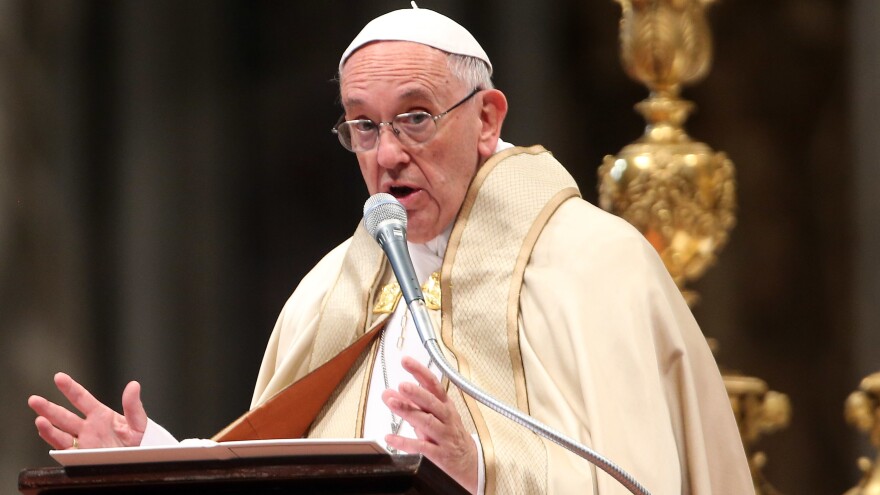Pope Francis is calling on those who use and control the media to avoid disinformation and "the sickness of coprophilia" — comparing a love of scandal to an abnormal interest in feces that can also include elements of sexual arousal.
An obsession with scandal can do great harm, Francis said Wednesday, in remarks that also cited people's tendency toward coprophagia (the eating of feces).
"I believe that the media should be very clear, very transparent, and not fall prey — without offence, please — to the sickness of coprophilia, which is always wanting to communicate scandal, to communicate ugly things, even though they may be true," the pope said in an interview with the Belgian Catholic weekly Tertio.
He added, "And since people have a tendency towards the sickness of coprophagia, it can do great harm."
Those comments were part of Francis' response to a short question about the media and means of communication. The question generated one of the longest replies of the interview, as Francis spoke both of the ills and the "immense good" modern communications and media can bring about.
"Nowadays they have in their hands the possibility and the capacity to form opinion: They can form a good or a bad opinion," the pope said.
"Disinformation is probably the greatest damage that the media can do, as opinion is guided in one direction, neglecting the other part of the truth," Francis said later.
The pope seemed to be speaking at times of both the traditional news media and of other methods of communication that have become prevalent and influential.
Francis said:
"The means of communication are the builders of a society. In and of themselves, they are made to build, to interchange, to fraternize, to make us think, to educate. In themselves they are positive. It is obvious that, given that we are all sinners, also the media can — we who use the media, I am using a means of communication here — become harmful. And the communications media have their temptations. They can be tempted by calumny, and therefore used to slander, to sully people, especially in the world of politics."
Describing a hypothetical scenario in people's past actions might be used against them — "something that is true, but already in the past, and which has already been paid for with a jail sentence, with a fine, or whatever" — the pope stated, "There is no right to this. This is a sin and it is harmful."
The pontiff invoked another medical metaphor to describe the times in which we're living, as he spoke out against hardheartedness.
"Today there is a need for a revolution of tenderness in this world that suffers from 'cardiosclerosis,' " Francis said, prompting the interviewer to reply, "Cardio ...?"
"Cardiosclerosis," the pope repeated.
Copyright 2021 NPR. To see more, visit https://www.npr.org. 9(MDAxNzg0MDExMDEyMTYyMjc1MDE3NGVmMw004))







